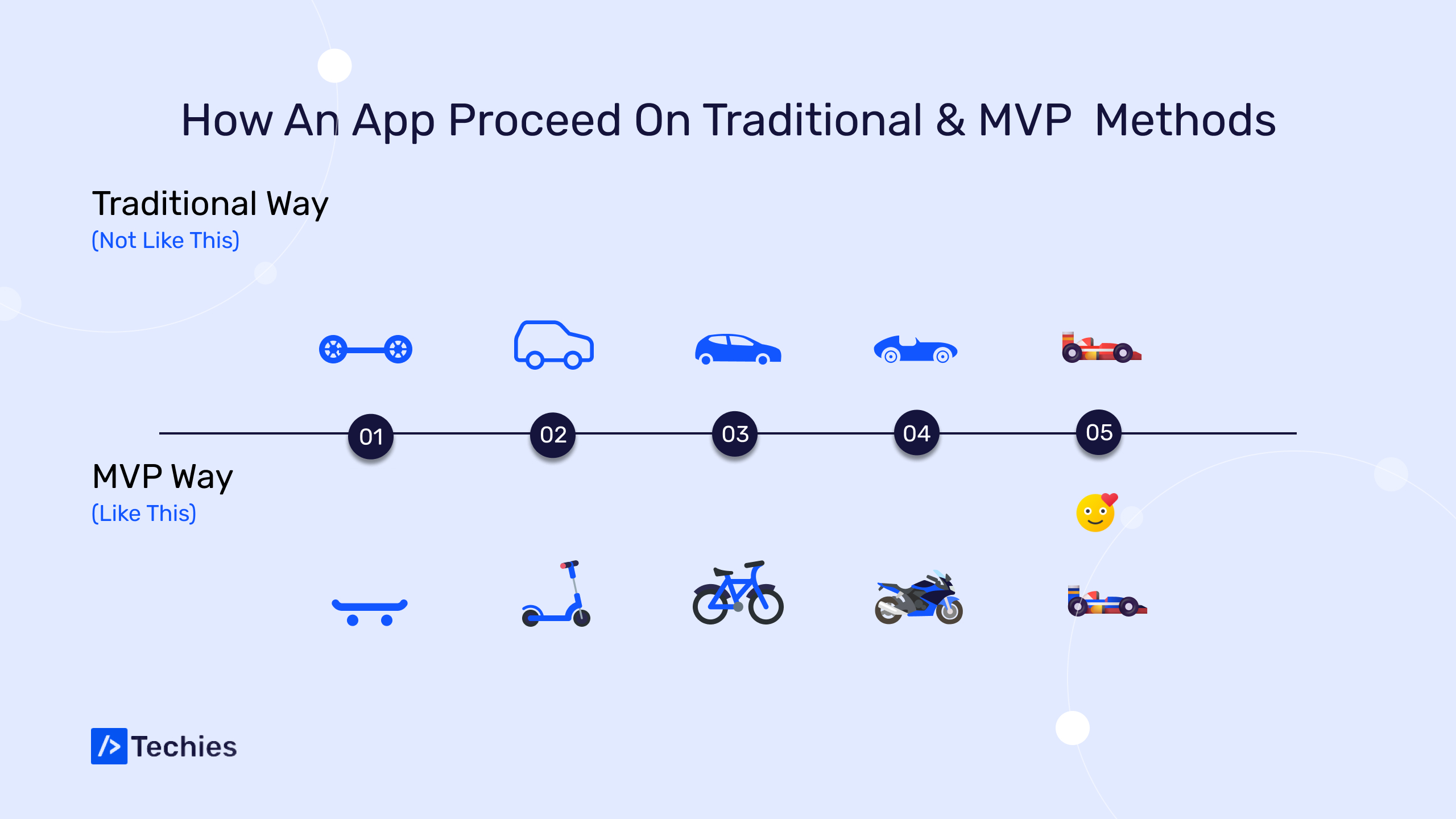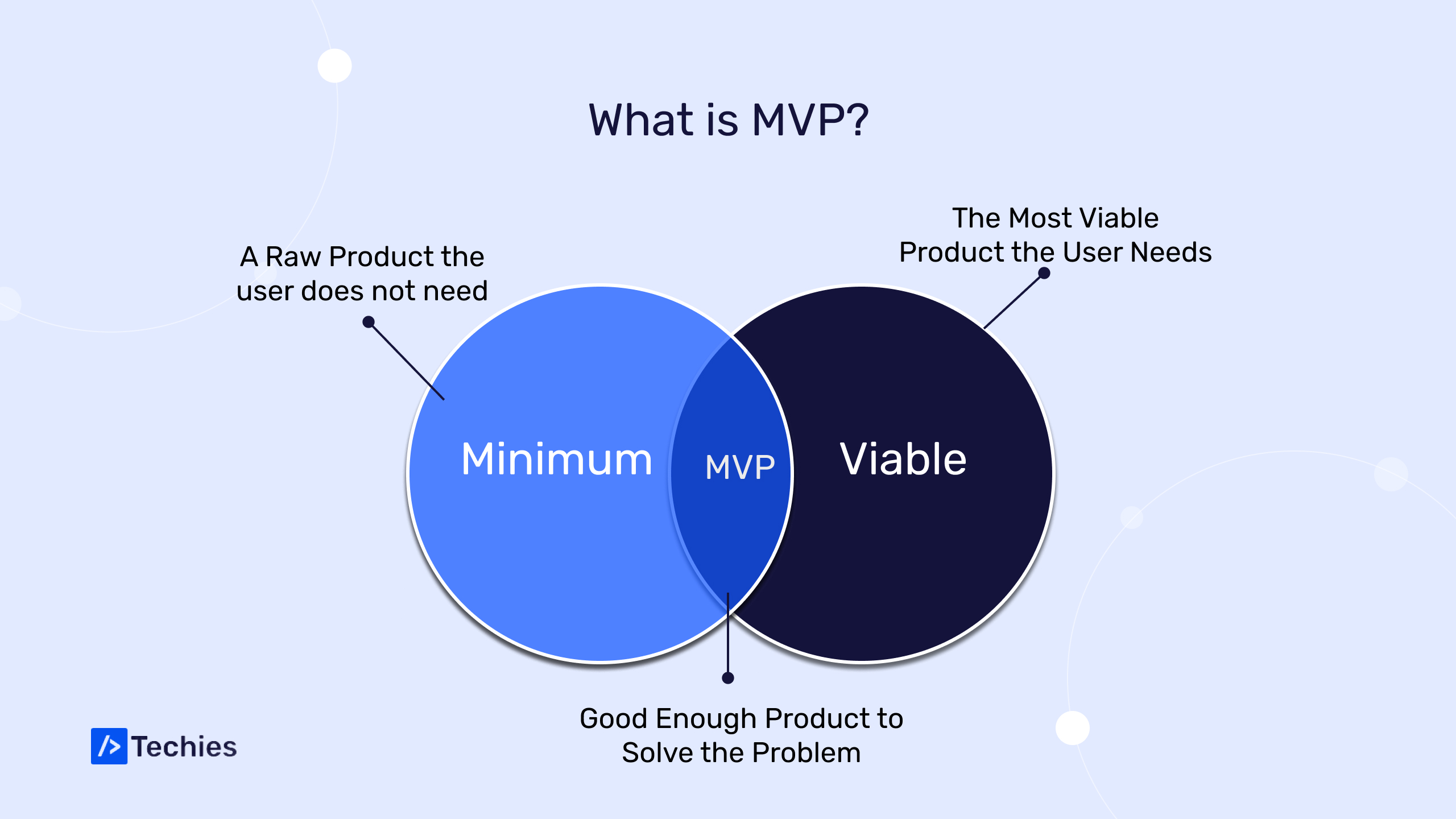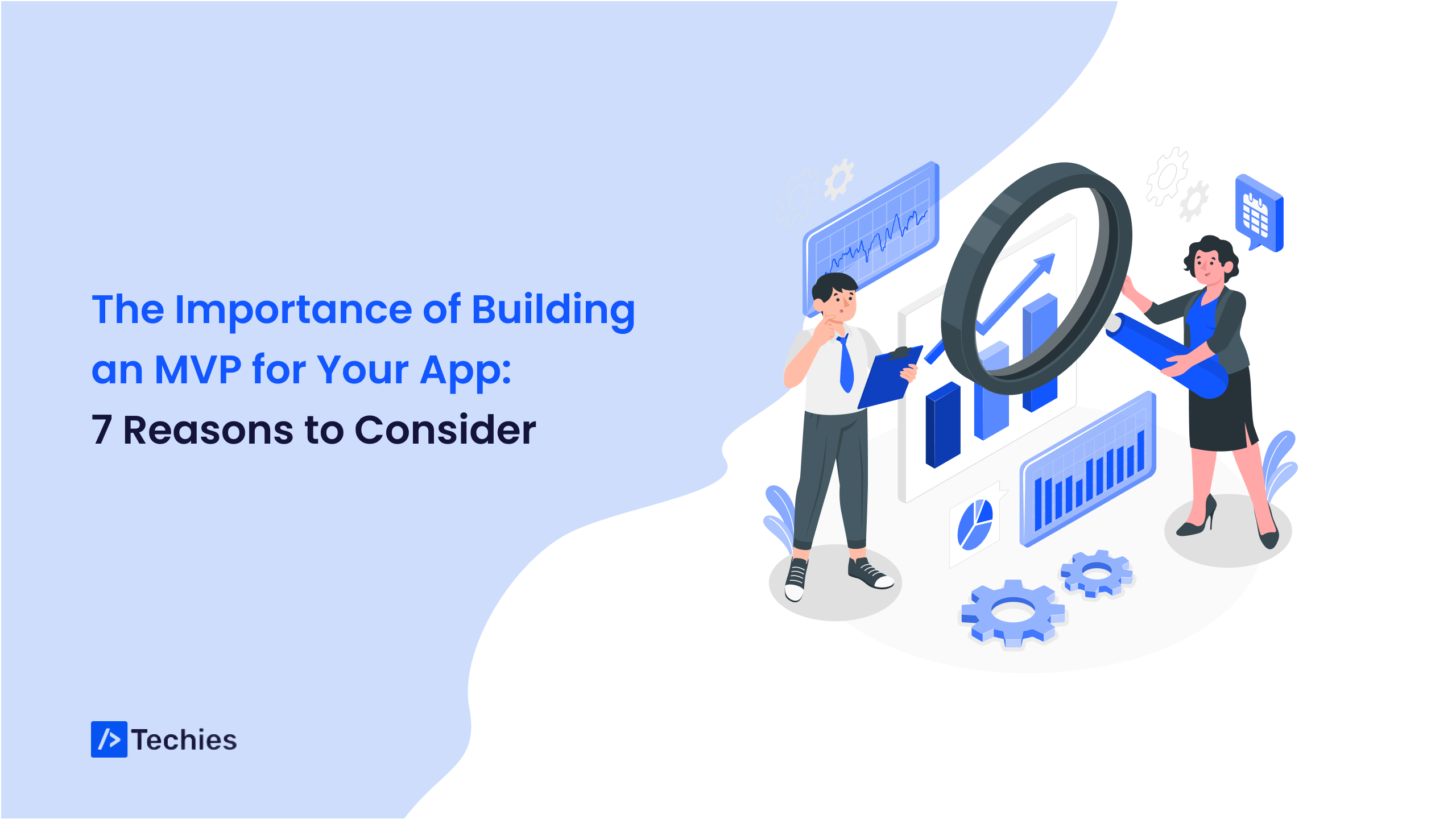The Importance of Building an MVP for Your App: 7 Reasons to Consider
When your creative spirit ignites with a killer app idea, you’re faced with a crucial decision: how to proceed with mobile app development? There are two main paths – the traditional route and the MVP (Minimum Viable Product) approach. Let’s delve into the traditional method, and then we’ll see how the MVP swoops in as your saviour.
The Traditional Method
The traditional approach centres around grand ideas – those pure, unfiltered concepts that flood your mind. You envision an app bursting with features, each one seemingly essential. You need the best development team to transform your vision into reality. This often leads to a frantic search involving countless calls, quotes, and demos from dozens of mobile app development companies.
Imagine finally securing a company to build your dream e-commerce app. You insist on every feature imaginable, from “Add to Cart” to “Fingerprint Authentication.” After intense negotiations, a hefty price tag is settled, and an advance payment is made. Months tick by, filled with anticipation. Finally, after a seemingly endless wait, the app is delivered. You pay the remaining balance, brimming with excitement. Launch day arrives… and then… silence.
The results are devastating. Users find the app confusing or dislike the interface. Maybe you’ve missed the mark entirely on their needs. This translates to a significant investment of time and money down the drain. You might blame bad luck, a cunning competitor, or even the stars, but the traditional approach can lead to failure.

Feeling scared? Don’t be! This is where the MVP comes in as your shining knight, ready to rescue you from the risk of wasted resources and app development nightmares. But before we explore the MVP approach, let’s first understand what it is.
What is MVP?
Let’s meet your savior—the MVP, or Minimum Viable Product. In simpler terms, an MVP mobile app acts as the essential building block of any mobile application. It allows developers to test the core concept of their app with real users before pouring massive resources into a full-fledged product.
Think of it as a stripped-down version focusing on the most critical features – the ones you initially believed were absolute necessities. By releasing an MVP, you can gather invaluable feedback from potential users on these core functionalities. This feedback helps pinpoint which areas require improvement and which features resonate with your target audience.

The beauty of an MVP lies in its flexibility. You can release it to a limited group for initial testing or launch it directly to the market. If the user response to the MVP features is lukewarm, it’s a clear sign that your app idea needs some remodelling. This early feedback allows you to course-correct and define your concept before investing significant time and money.
Let’s delve deeper into the topic and uncover the advantages of initiating your app development journey with an MVP. Discover how this strategic approach can transform your app idea into a profitable reality, all while minimizing risks and maximizing your chances of success.
Why Build An MVP While Creating An App: 7 Reasons to Consider

Test Your Concept
Save Time and Resources
Iterate Based on Feedback
Mitigate Risk
Faster Time-to-Market
Focus on Core Functionality
Attract Investors and Partners
Now, before concluding, it is obvious which scenario you should rely on MVP and when to avoid it. Let’s find out.
When to Choose MVP
Choosing the proper front-end framework is crucial for building modern web applications. Here’s a detailed breakdown of the critical differences between React and Angular:
Uncertain Market Demand
Limited Resources
The complexity of the Project
Iterative Development Approach
Testing New Ideas
While Web Component technology is still evolving, its potential benefits for modern web development are undeniable. Web Components could become a game-changer as the ecosystem improves, allowing developers to build more efficient, maintainable, and scalable web applications.
When Not to Choose MVP?
Well-Defined Requirements
Highly Specialized Audience
Time-Sensitive Projects
Abundant Resources
Established Market Presence
Remember, the MVP is a powerful tool, but it’s not a one-size-fits-all solution. Choose the approach that best positions your app for success!
How DTechies Can Help to Build MVP?
Understanding when to build an MVP for your app can significantly impact its success in the competitive digital landscape. Whether you’re a startup looking to validate a new concept or an established company seeking to innovate, the strategic decision to invest in an MVP can pave the way for a more efficient and user-centric development process.
Our team of app developers specializes in guiding businesses through the MVP journey. With a deep understanding of market trends, user behavior, and cutting-edge technologies, our dedicated professionals can help you build a robust MVP that lays the foundation for your app’s success.
By leveraging our expertise and experience in mobile app development, you can streamline the MVP development process, mitigate risks, and accelerate time-to-market. Whether you’re looking to hire Android app developers or need comprehensive support across all stages of app development, DTechies is your trusted partner for turning innovative ideas into reality.
Looking to take your web development projects to the next level?
Frequently Asked Questions
What are the key differences between an MVP and a full-fledged app?
An MVP focuses on the core functionalities that solve a specific user problem. A full-fledged app offers a more comprehensive range of features and functionalities, catering to a broader set of user needs.
What big companies use MVP?
A surprising number of tech giants have adopted the MVP approach. Companies like Twitter, Dropbox, Uber, Airbnb, and Spotify all started as MVPs, focusing on core functionalities to validate their concepts before evolving into the feature-rich apps we know today. Their success stories are a testament to the effectiveness of the MVP strategy.
How long does it take to build an MVP?
The development timeline for an MVP can vary depending on its complexity. Generally, MVPs are developed much faster than full-fledged apps, taking anywhere from a few weeks to a few months.
How much does it cost to build an MVP?
The cost of developing an MVP is significantly lower than that of a full-fledged app. This is because MVPs require fewer development resources and a shorter development timeframe. For a complete estimation, you can contact us or email us at sales@dtechies.com.

ABOUT AUTHOR
Roopesh Jain
Subscribe to Our Newsletter
Let's Work Together
Office Location
1042, Second Floor, Sector-4, Hiran Magri, Udaipur, Rajasthan - 313002
